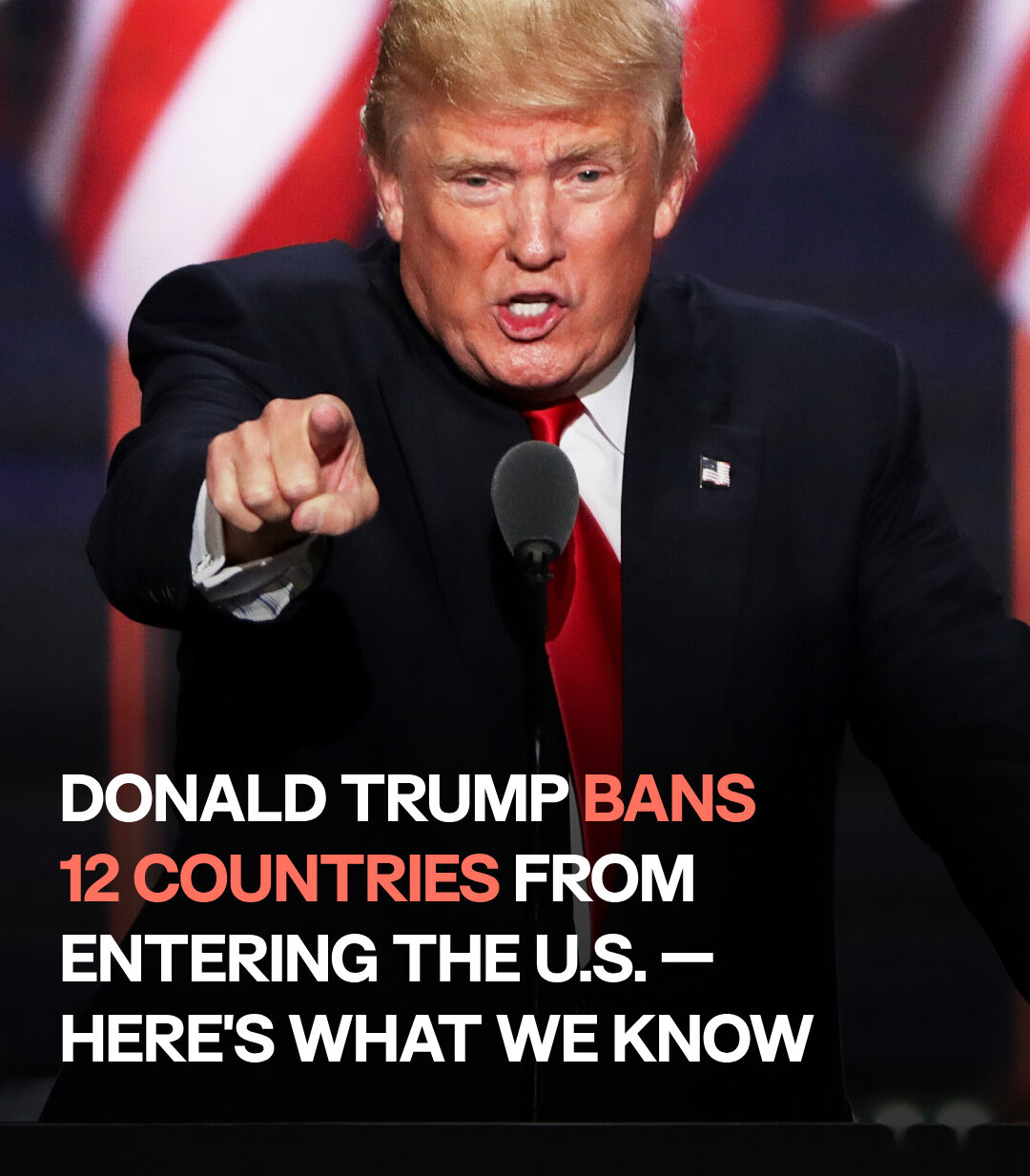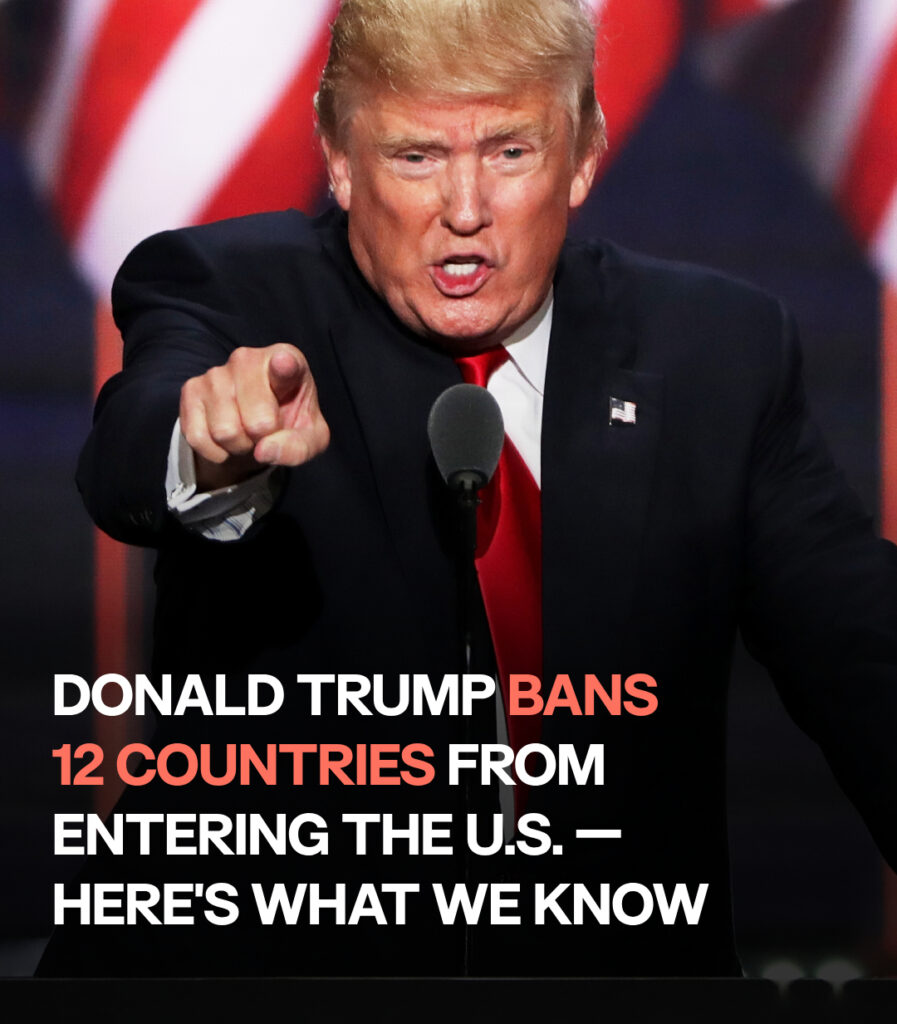In a sweeping national security move, President Donald Trump has signed a proclamation barring entry into the United States for nationals of 12 countries and imposing partial restrictions on seven others.
President Donald Trump has signed a proclamation prohibiting nationals from 12 countries from traveling to the United States, citing heightened national security concerns. The order was signed on Wednesday, June 4, 2025.
The countries subject to full travel bans include Afghanistan, Myanmar, Chad, Congo, Equatorial Guinea, Eritrea, Haiti, Iran, Libya, Somalia, Sudan, and Yemen. In addition, partial restrictions were imposed on nationals of Burundi, Cuba, Laos, Sierra Leone, Togo, Turkmenistan, and Venezuela.
The proclamation provides exceptions for lawful permanent residents, existing visa holders, individuals in certain visa categories, and persons whose entry would serve U.S. national interests.

This latest move forms part of Trump’s broader strategy to tighten border security and protect the country from foreign terrorism and other safety threats.
According to the administration, national security agencies conducted an extensive review to assess the degree of risk each country poses, particularly concerning terrorism and public safety vulnerabilities.
The proclamation stated that the restrictions and limitations imposed are “necessary to garner cooperation from foreign governments, enforce our immigration laws, and advance other important foreign policy, national security, and counterterrorism objectives.”
The administration also explained that these travel restrictions are tailored to the conditions of each individual country, taking into account unique circumstances to encourage future cooperation.
Some of the targeted countries lack effective screening and vetting systems, making it difficult for the U.S. to identify potential threats before entry. Others have consistently high visa overstay rates, undermining immigration controls and placing an added burden on enforcement systems.
Several countries are also said to withhold identity and security-related information, hindering the government’s ability to conduct effective vetting.
Furthermore, certain nations were identified as having significant terrorist activity or state-sponsored terrorism, which the proclamation describes as posing a direct threat to U.S. national security.
In some cases, countries have failed to repatriate their nationals who have been ordered removed from the United States, complicating immigration enforcement and public safety efforts.
While the restrictions are firm, the administration emphasized they remain conditional. The U.S. government may revise or lift them should the affected countries demonstrate improved cooperation and compliance with security and immigration protocols.
The ban is set to take effect on Monday, June 9, 2025, at 12:01 a.m., providing a brief implementation window designed to avoid the confusion and airport disruptions that accompanied a similar policy rollout by Donald Trump in 2017.


